IN FOCUS: As Singapore's opposition grows, do the PAP's government parliamentary committees still have a role to play?
These GPCs, created at a time when there were almost zero opposition lawmakers, were recently cited by Prime Minister Lawrence Wong as a key outreach tool for the ruling People's Action Party.
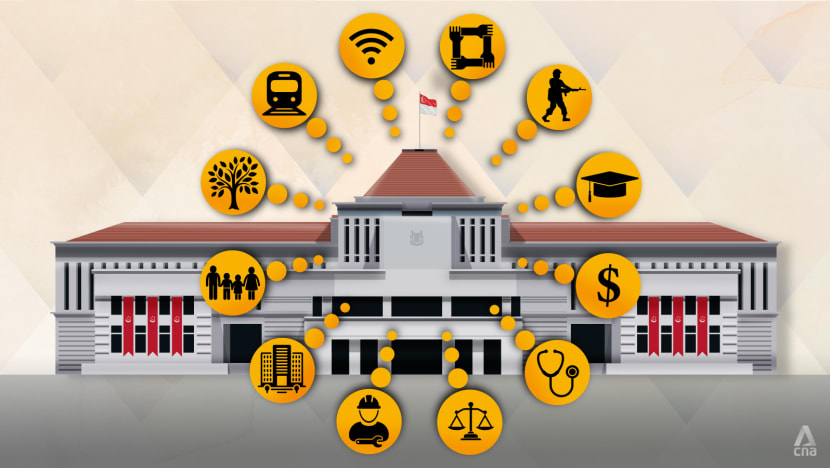
The 12 Government Parliamentary Committees comprise backbenchers from the ruling People's Action Party, and are a part of the party's organisational structure. They cover areas such as transport, health, education, defence and foreign affairs. (Illustration: CNA/Rafa Estrada)

This audio is generated by an AI tool.
SINGAPORE: In January, a seven-hour debate played out in parliament after a group of backbenchers filed a motion calling for an inclusive and safe digital society in Singapore.
The five Members of Parliament (MPs) were all from the ruling People’s Action Party (PAP), and all from the Government Parliamentary Committee (GPC) for communications and information.
Such committees have, in recent times, also spearheaded parliamentary proposals in areas such as mental health and climate change.
But they have been around since the late 1980s, and played pivotal roles in key national policies such as the Certificate of Entitlement (COE) vehicle quota licence system and the Ethnic Integration Policy in public housing.
Despite the name, GPCs are not actually parliamentary bodies, but a part of the PAP’s organisational structure – and the politics that come with it.
They were mentioned earlier in June by newly minted Prime Minister Lawrence Wong, at an event outlining the PAP’s plans to refresh its approach to governing Singapore.
“Our PAP MPs regularly engage various groups to hear your views around these issues, and initiate discussions on how we can better address your concerns,” he said in a speech. “One avenue we do this is through the PAP Government Parliamentary Committees.”
He said PAP MPs would step up engagement efforts through the committees. “We want to engage not just our own activists, but also wider community groups and stakeholders, so that they can represent your views, and we can have more effective discussions and debates in parliament.”
Backbenchers who make up the GPCs have over the years gradually moved towards such a role – of gathering feedback from constituents, to use in their reviews of policies and legislation.
Their original mission, however, was to provide checks and balances on Cabinet decisions, and to scrutinise policies and laws, at a time when the House nearly entirely comprised PAP MPs.
Even with a growing opposition presence, GPCs still have a part to play – but could probably do with a bit more publicity and exposure, said former lawmakers as well as political observers.
A NEW POLITICAL FORMULA
Early in 1987, the GPC system was introduced by then-Deputy Prime Minister Goh Chok Tong, who later became Singapore’s second Prime Minister. He called it a new “political formula” that would take the country into the next century.
Back then, he said the PAP now had in its ranks better-qualified MPs who had come from successful careers. Beyond basic constituency work, they also wanted their political input and opinions to be heard.
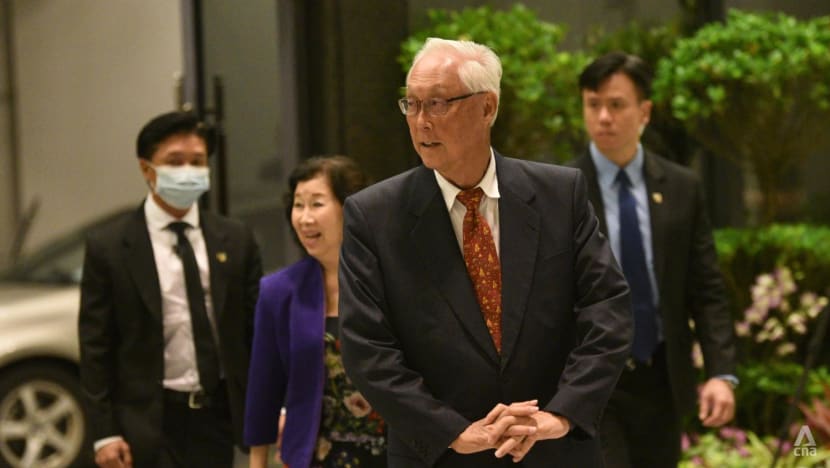
Emeritus Professor Hong Hai, from the Nanyang Technological University’s Nanyang Business School, had been invited by Mr Goh to outline a vision for the GPC system.
Prof Hong was at the time managing director of a Singapore-based private group of companies, and a member of the PAP’s resource pool. He later became MP for the now-defunct Bedok Group Representation Constituency (GRC) from 1988 to 1991, and was GPC chair for transport and communications and health during his term.
In a January 1987 article for PAP publication Petir, he wrote that by the time legislation reached parliament for debate, the conclusion was usually foregone and that the views of backbench MPs seldom affected the outcome.
He then noted a number of policy decisions being amended or withdrawn, such as the 1984 Graduate Mothers Scheme, which left many women unhappy with discriminatory moves in school enrollment and tax deduction.
Such reversals could have been avoided if MPs outside the Cabinet had a greater hand in evaluating proposed legislation, Prof Hong said back then.
The following month, PAP backbenchers were grouped into nine GPCs focusing on different topics.
Each committee had five to six members, with one appointed chairman. Today, there are 12 GPCs with six to nine members each, with a chairman and deputy chairman among them.
Each committee was in turn backed by a panel of independent experts from both public and private sectors. They did not have to be party members or volunteers, and performed the role on a voluntary basis.
For example, the GPC for national development and housing could draw on professionals from the construction, real estate and architecture fields, said Dr S Vasoo, an adviser to Ang Mo Kio GRC grassroots organisations.
Typically, ahead of a new policy being implemented, the minister in charge would hold closed-door briefings for GPC members, where confidential documents would be shared.
With this first-hand information, the GPC would then raise potential issues and implications of the planned policy.
Dr Vasoo, who was an MP from 1984 to 2001, said civil servants were initially concerned and anxious about coming under close scrutiny of the GPCs. He said this was “rightly so”, as the committees aimed to make government departments and ministries more proactive and responsive.
It took one term of the GPCs in existence before a working relationship was built up and mutual trust and respect developed, said Dr Vasoo.
The GPC system found early success in contributing to distinctive Singaporean policies such as the COE system, implemented in 1990, and the Ethnic Integration Policy (EIP) a year before that.
“In the earlier years, the GPC examined and found that housing was very much unbalanced. There were higher ethnic groups in certain areas, and there was basically a concern of increasing enclaves,” said Dr Vasoo, who was involved as a member of the GPC for national development and housing.
This was flagged to then-Prime Minister Lee Kuan Yew who quickly took action, introducing a policy to set quotas for flats owned by each racial group in an HDB block or neighbourhood.
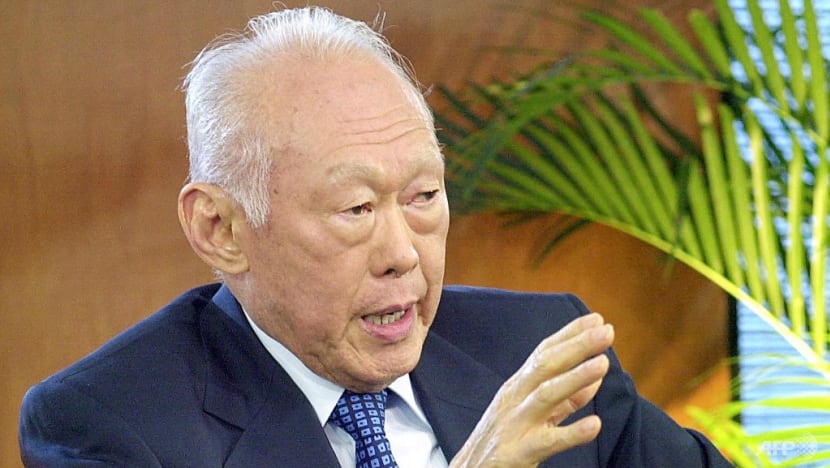
But the GPC’s work was not finished. It monitored how the EIP played out and soon uncovered one negative impact – the quotas were making it difficult for those in minority groups to sell off their flats.
Prof Hong told CNA the creation of GPCs “lifted the morale of backbenchers, who welcomed the prospect of being more involved in policy matters.”
They were not intended as “pseudo-opposition” bodies, but rather to give MPs a bigger role in examining new policies and legislation, and even expressing alternative views, he said.
“With backbenchers playing this role, there would presumably be less need for opposition Members of Parliament to provide check and balance,” said Prof Hong.
In 1987, there was one opposition MP – the Singapore Democratic Party’s (SDP) Chiam See Tong, for Potong Pasir.
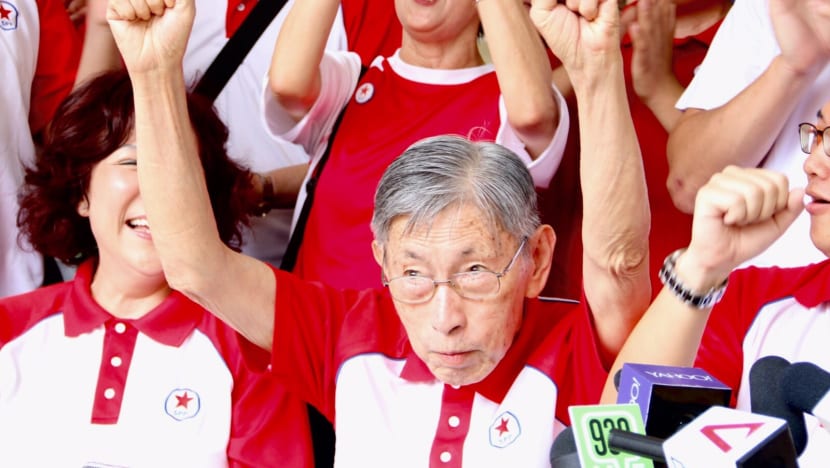
EVOLVING OPPOSITION LANDSCAPE
Over the years, the emphasis has appeared to shift towards GPCs playing more of a feedback and endorsement role of ministerial policies, according to Prof Hong.
He noted that this began after the 1991 general election when the PAP “suffered a slight election setback”, with four seats going to the opposition.
“This may have given impetus to the party to close ranks and diminish the role of GPCs in critiquing ministerial policy,” he told CNA.
The number of opposition MPs has grown significantly since.
“The opposition presence is certainly here to stay. We accept that it is going to be a permanent feature in our political system,” said Mr Wong on the eve of his swearing-in this year. “The days of PAP dominance under Mr Lee Kuan Yew, those days are over.”
From 1991 to 2011, there were no more than four directly elected opposition MPs.
That number rose to six after the 2011 election, with the Workers’ Party (WP) retaining Hougang and also securing the first-ever opposition GRC in Aljunied. There were also three Non-Constituency MP seats taken up by the top losing opposition candidates.
The most recent electoral contest in 2020 resulted in the WP holding 10 seats in parliament, after adding Sengkang GRC to its fold. The Progress Singapore Party also has two Non-Constituency MPs in the House.

WP chief Pritam Singh, meanwhile, was formally appointed Leader of the Opposition after the 2020 election.
In his role, Mr Singh receives confidential briefings by the government on select matters of national security and external relations, and in the event of a national crisis or emergency.
He also receives an extra allowance to hire up to three additional legislative assistants, on top of what MPs get for one legislative assistant and one secretarial assistant.
Mr Singh also has right of first response among MPs and more time for his speeches, equivalent to that given to political office holders.
STILL RELEVANT TODAY?
None of this means that GPCs have lost all relevance, political observers said.
Dr Teo Kay Key, a research fellow at the Institute of Policy Studies, said there was still merit in having such dedicated groups look at each ministry and check for gaps in policy.
“These GPCs look at specific areas, while opposition MPs might be more broad-based in their checks and balance function,” she told CNA.
In 2020, Mr Singh had said that due to their limited numbers, the WP's MPs would organise themselves into five topical areas – health, ageing and retirement adequacy; jobs, businesses and the economy; education, inequality and the cost of living; housing, transport and infrastructure; and national sustainability.
Singapore University of Social Sciences associate faculty Kasthuri Prameswaren added that the ruling PAP is able to delegate a larger number of MPs to look at topics in more depth and breadth, compared with the opposition camp.
Due to the depth of its backbench, the PAP has the “luxury of having a choice” in how best to deploy its MPs to cover the various topics, said Chua Chu Kang lawmaker Zhulkarnain Abdul Rahim, who was newly appointed as chairman of the GPC for home affairs and law on Jul 1.
GPC chairpersons told CNA the challenge lies in balancing their committee subject matter with issues brought up by their own constituents. They also need to ensure their focus doesn’t just veer towards the trending topics of the day.
“There will be some issues and topics that people don't really want to pay attention to, maybe because it's a bit more technical,” said MacPherson MP Tin Pei Ling, who heads the GPC for communications and information. “But nonetheless, these are all important stuff that we must consider.”
Nee Soon GRC MP Louis Ng, who heads the GPC for sustainability and the environment, said the committees provide “mobilising power” for MPs to come together to stand behind specific causes.
Experts also pointed to the January effort by the GPC for communications and information, and other motions by committees for health as well as sustainability and environment, as positive examples of pushing for change.
One other enduring function of the GPC system has been as a testing ground for MPs to prove their leadership skills, to assess if they have what it takes to scale the political ranks.
“Membership of committees could be a good training ground for entry later into a Cabinet position. In fact, this is a preferred route,” Prof Hong said back in 1987.
Ms Kasthuri explained: “Newer or first-term MPs appointed to GPCs would have the opportunity to engage in the nuances of policymaking and have a stronger, first-hand sense of the concerns specific to the various GPCs, which will place them in a better position to address these concerns should they advance and take up other portfolios subsequently.”
Minister in the Prime Minister's Office Indranee Rajah, for instance, chaired the GPC for law and home affairs from 2004 to 2006, and then for defence and foreign affairs from 2006 to 2009.
Current Minister for Communications and Information Josephine Teo also chaired the GPC for education during her first term in parliament from 2006 to 2011.
Minister for Culture, Community and Youth Edwin Tong, meanwhile, was deputy chair of the GPC for law and home affairs from 2011 to 2018.
After the 2015 General Election, three new MPs from the ruling party, Mr Amrin Amin, Ms Sun Xueling and Mr Chong Kee Hiong were made deputy chairs of GPCs. Mr Amrin and Ms Sun went on to be political office holders.
Recently, Bukit Batok MP Murali Pillai was made Minister of State for Law and for Transport in Mr Wong’s first Cabinet, after chairing the GPC for law and home affairs from 2018 to mid-2024.
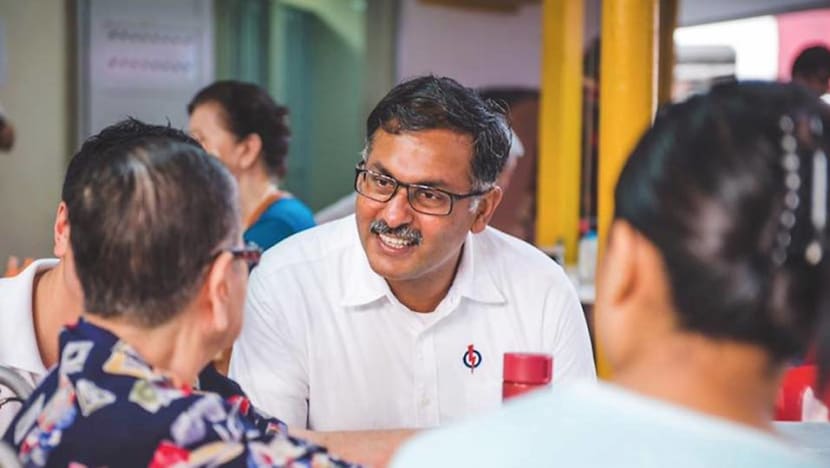
Now, with the Prime Minister highlighting the GPCs in his first public address to the PAP, it could point to the committees fitting into the more consultative and open style of governance that Mr Wong and his fourth-generation or 4G leadership team have promised, said Ms Kasthuri.
That’s if they can function as platforms to actively gather citizen sentiment and facilitate the translation of such feedback into concrete policy options – in other words, as a channel for citizen-government dialogue, she added.
Ms Kasthuri said this would also contribute to citizens better understanding tough but necessary policy decisions, thus further building trust and confidence in governing institutions.
Mr Zhulkarnain cited a motion on the Israel-Hamas war in November last year, filed by defence and foreign affairs GPC members, as an example of showing resonance with issues on the ground.
How GPCs can play a role in Mr Wong’s vision of more consultative governance is by ensuring that people know their views are not just heard, but also acted on, he added.
THE MODERN-DAY GPC
PAP MPs told CNA that how GPCs operate has also evolved with the times.
While there are largely no formal meetings, the committees maintain regular contact, catching up during parliament sittings and through messaging group chats.
"Our WhatsApp chat doesn't sleep," quipped Tampines GRC MP Desmond Choo, who heads the GPC for manpower.
It is clear that Singapore is not alone in facing the challenges that come along with digitalisation, said MP Tin Pei Ling. Wrapping up the debate on the motion tabled by her Government Parliamentary Committee in Parliament on Wednesday (Jan 10), she noted that challenges such as scams and online harms have been a global issue. She believes there is now more assurance with the initiatives and safeguards that the Government has already put in place to protect and enable Singaporeans in the digital economy and digital society. “The 'big picture' is a lot clearer now,” she said. Instead of claiming that there is a “crisis of confidence”, it is more appropriate to note that Singapore has been proactive in tackling the challenges, she added. She stressed that more needs to be done. “If everyone is willing to take on a larger share of the responsibility, we can protect more people and reduce the possible harms to the ordinary citizen,” she said. “With stronger partnerships between the Government, industry players and our people, Singapore can be the beacon and lead the world in fostering trust in the digital future through a safe and inclusive digital society,” she said.
Each GPC also no longer has a designated panel of experts to advise them on issues. Instead, they keep in touch with industry players who brief them on an ad-hoc basis.
“Now we have different kinds of stakeholder engagements, which actually helps our process even more sharply,” said Mr Zhulkarnain, pointing to both online and in-person dialogues and roundtables.
“We are not just consulting a group or panel which have already been pre-appointed or pre-determined.”
Mr Ng said his sustainability GPC also builds domain knowledge by having both climate and party activists attached to each committee member when drafting speeches for motions, to reflect input from the ground.
He reiterated that GPCs are “political by nature” since the system is a party construct — but also that they do not have privileged access to information.
In March, Ms Indranee said in parliament that ministries may brief a GPC, if the ministry wishes to seek feedback or if the GPC wants to find out about something the ministry is doing.
“But if there is anything that is political, that's really not for the civil servants. That is really for the minister and the GPCs, because the GPCs come from the same party as the minister,” she said, in response to a question from opposition MP Gerald Giam of Aljunied GRC.
GPCs refer to publicly available government outreach surveys, parliament Hansards and overseas examples when coming up with their proposals, PAP MPs told CNA.
IMPROVING THE SYSTEM
Going forward, GPCs could also afford to shed more light on their inner workings, said Assistant Professor Elvin Ong from the National University of Singapore's political science department.
“No minutes are published. No public sense of what they actually do and how frequently they meet is known,” he noted.
While the PAP is not obliged to provide this information, the public may have doubts about how effective GPCs actually are, since almost nothing is known about how they operate, Asst Prof Ong added.
“To improve public perceptions of the utility of GPCs, one potential reform the PAP can consider is to publish a bi-annual or annual ‘work report’ of GPCs, to clearly lay out what GPCs have done and expect to continue to do.”

Some PAP party members agreed, telling CNA that they felt the work of GPCs was relatively unknown. They spoke on condition of anonymity, as party members are not supposed to speak to the media without official authorisation.
They said that in this era of political contestation, with the prevalence of social media as well as parliament sittings being streamed live, GPC efforts should be more publicised to the wider population.
Analysts also suggested that membership of the GPCs be extended to the opposition to capture a diversity of views.
“If non-PAP MPs are involved, it could help to broaden the perspectives on these critical areas,” said Dr Teo.
“This could also enhance bipartisanship and collaboration, especially since trends indicate that we are unlikely to revert back to a parliament with only MPs belonging to one political party.”
Ms Kasthuri added that input from non-PAP MPs in a GPC’s deliberation process would be more representative of the electorate, in an increasingly diverse sociopolitical landscape.
But other observers reiterated the political aspect of the GPCs’ construct, which necessitates keeping the ruling party and the opposition camp separate in the policymaking process.
For one, the PAP's grassroots mechanisms are closely intertwined with the work of GPCs. One party member, who has been involved in the PAP Policy Forum (PPF), described how forum members would be attached to different GPCs based on their interests. The forum lets rank-and-file party members engage government leaders directly on policy issues.
PPF members also helped prepare GPC speeches for annual Budget debates, chipping in to research key issues and gather sentiments from the ground, said the party member.
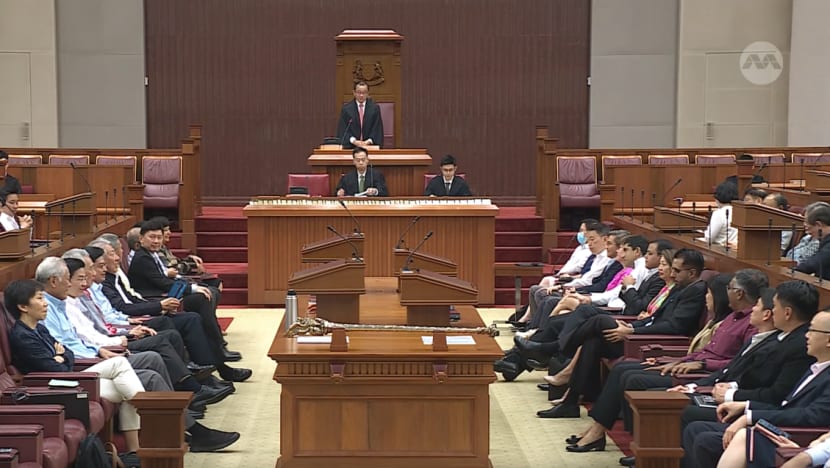
From their creation, Mr Goh had said that GPCs are set up differently from select committees, which comprise MPs from various parties appointed by parliament to examine certain issues.
He said that when GPCs disagree with a certain policy, they could say so and argue their case; however when they agree, they should not remain silent either.
Dr Vasoo said the nature of politics is such that the opposition would not be able to do this.
“If the policies are good, it doesn't matter, they don't say it's good,” he said. “If they say it is good, then what's the use? What's their role if they agree with everything? The role of the opposition is basically to oppose as far as possible.”
“Basically, you are from a different party, with a different political persuasion. You are wearing a different badge … There is an ideological difference in the delivery of your policy.
“Fundamentally, it is about how to win the voters over to support your cause.”

















